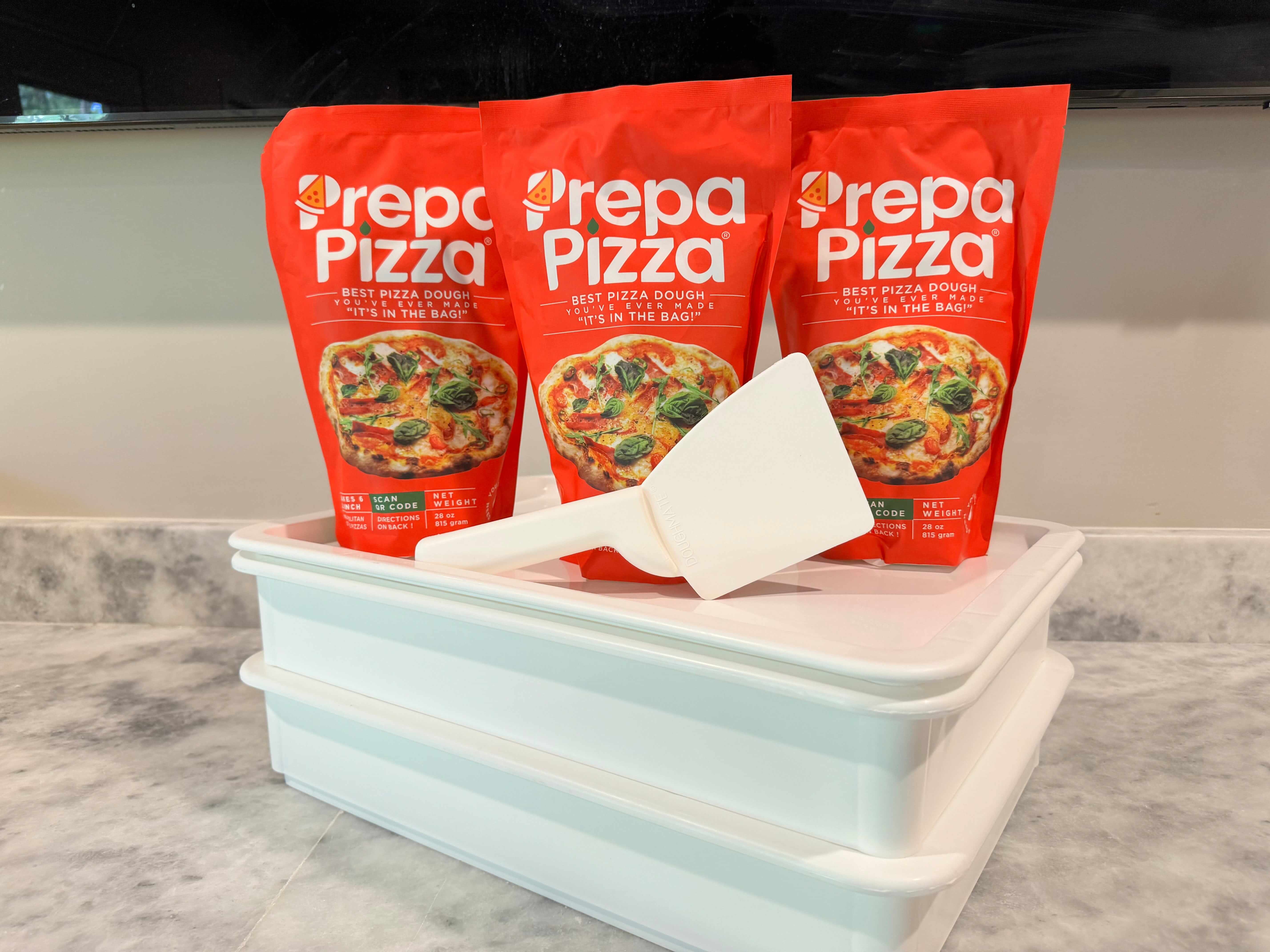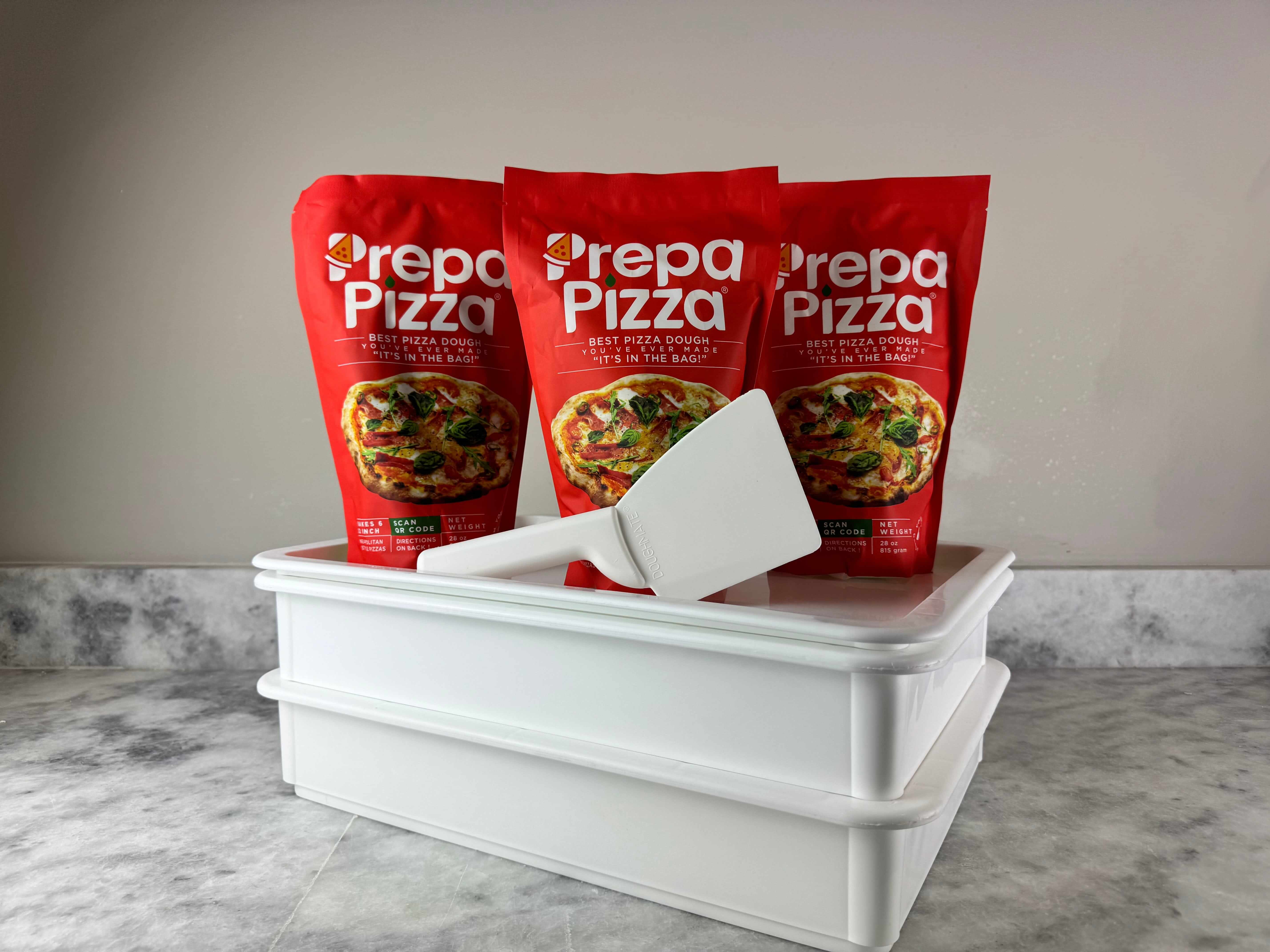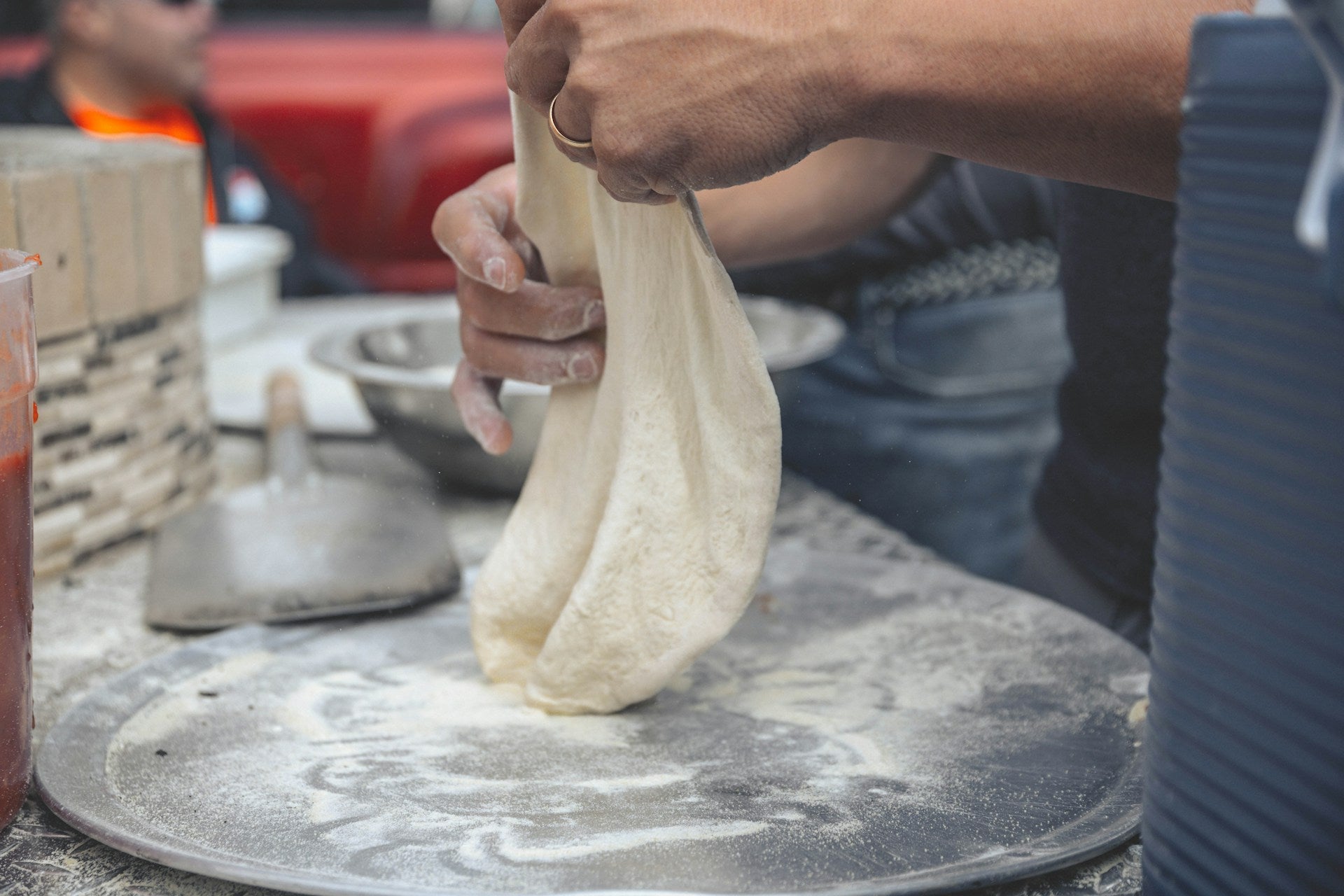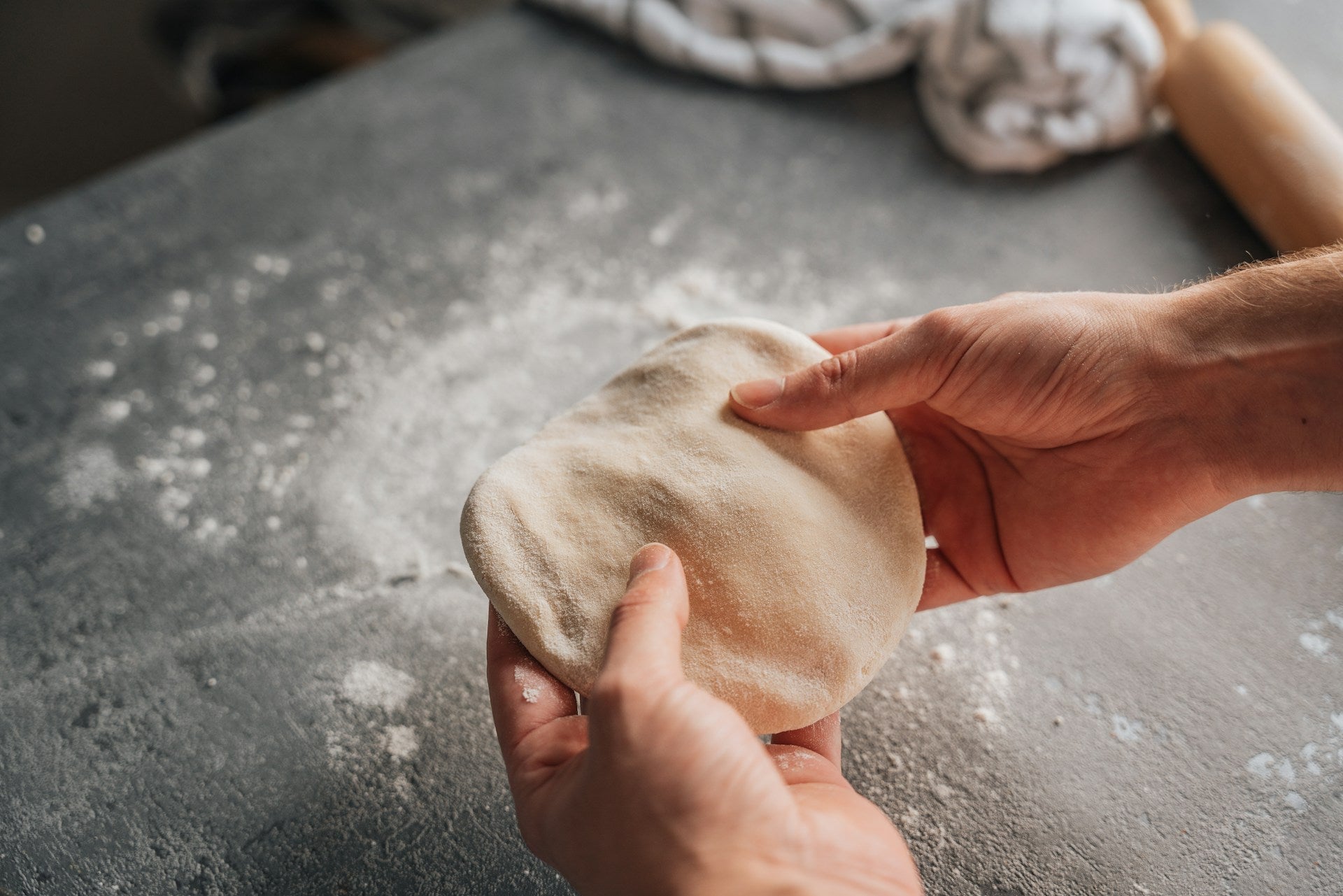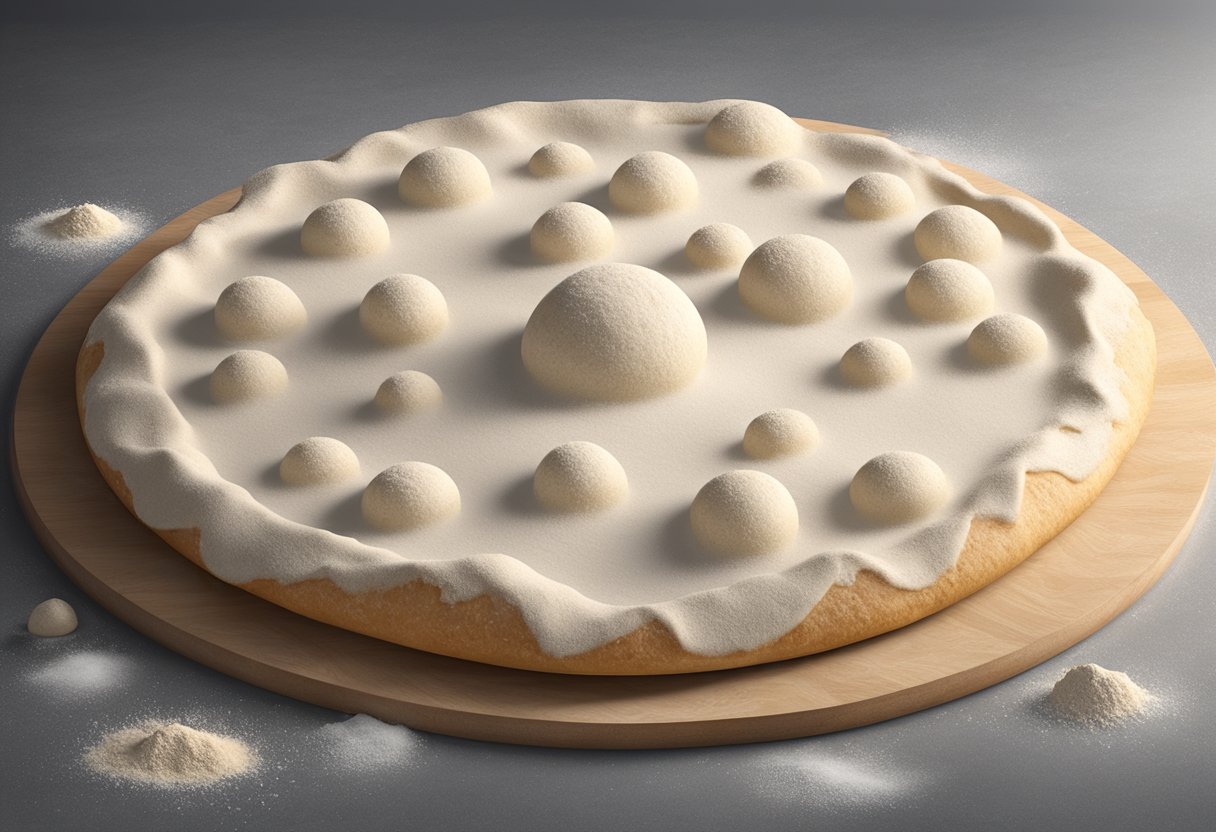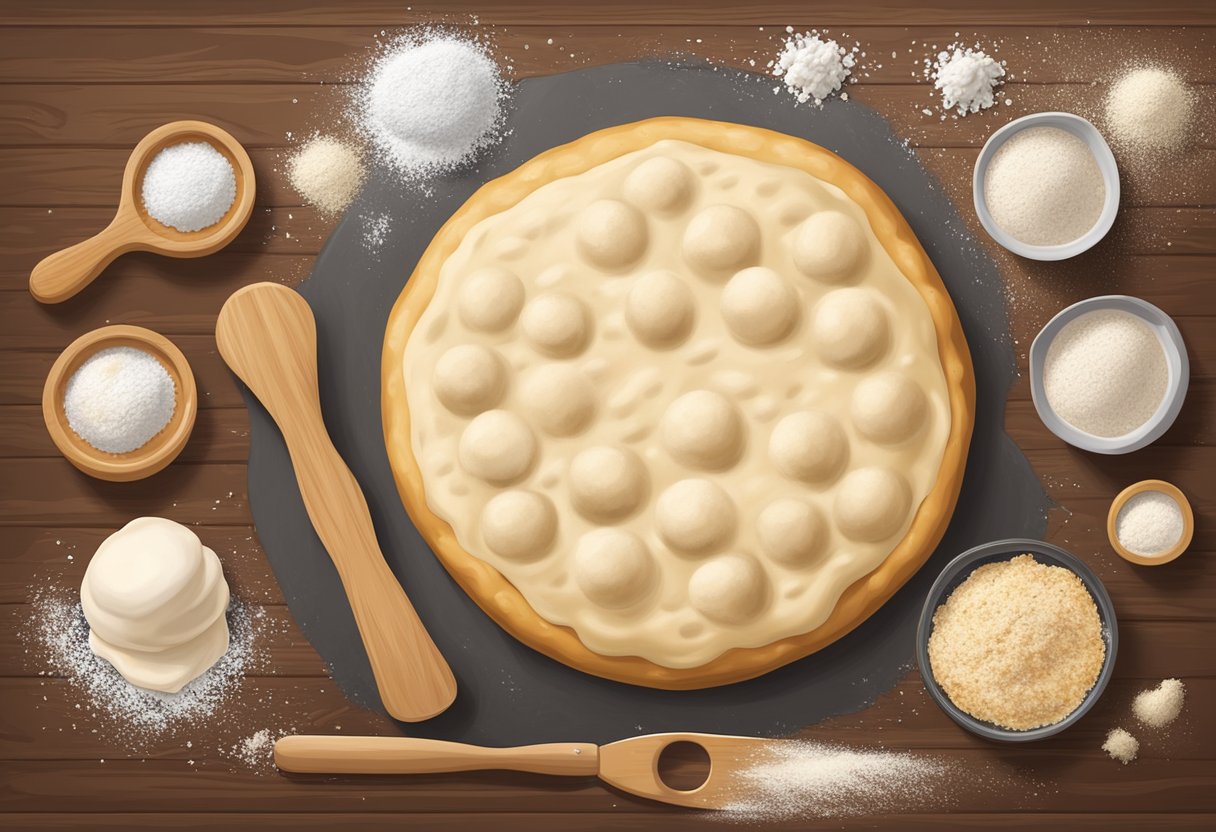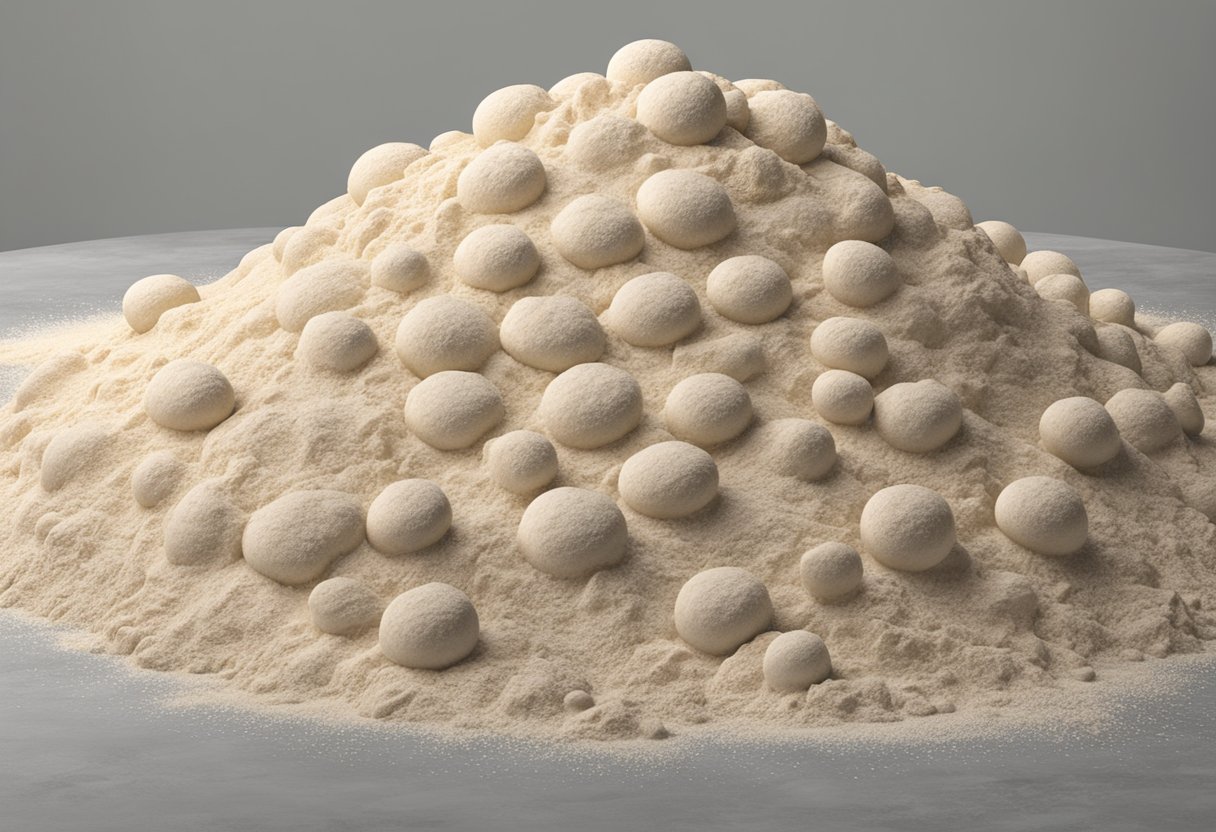
Pizza Dough in Bulk: Streamlining Your Pizza Production Process
When it comes to making pizza, the quality of your dough can significantly influence the final product. Whether you run a restaurant or are planning a large event, buying pizza dough in bulk offers convenience, consistency, and cost savings. Many suppliers provide various options that cater to different styles and preferences, allowing you to experiment and find the best fit for your needs.
Purchasing bulk pizza dough helps streamline your workflow, enabling you to focus on preparing delicious toppings and serving customers. With pre-made options available, you can save time without sacrificing quality. In this post, we’ll explore the benefits of bulk pizza dough, affordable suppliers, and tips for maximizing your dough usage in any setting.
Fundamentals of Pizza Dough
To create exceptional pizza dough, the quality of your ingredients and understanding the hydration levels are crucial. Each element plays a significant role in the final texture and flavor of the dough.
Importance of High-Quality Ingredients
The foundation of great pizza dough lies in the quality of your ingredients. Use high-protein flour to yield a strong gluten structure, which provides elasticity.
- Yeast: Choose active dry yeast or fresh yeast, as they help the dough rise effectively.
- Salt: This not only enhances flavor but also controls yeast activity.
- Sugar: A small amount can promote browning and balance flavors.
- Olive Oil: Adding olive oil contributes to a tender crumb and rich flavor.
Investing in quality ingredients leads to a noticeable difference in your final product, elevating your pizza's flavor profile.
Understanding Dough Hydration
Dough hydration refers to the ratio of water to flour in your recipe, affecting the dough's texture and handling.
- A hydration level of 60-65% works well for traditional pizza dough, creating a balance between chewiness and crispness.
- Higher hydration (above 70%) leads to a more open crumb structure, suitable for artisan-style pizzas but may require more skill to handle.
Kneading the dough properly helps develop gluten and incorporate air, resulting in a light and airy crust. Monitoring hydration ensures that your dough is workable while achieving the desired texture.
Vegan and Dietary Considerations
When selecting pizza dough in bulk, it is essential to consider vegan options and alternatives for those with dietary restrictions. Understanding different ingredients will help meet various needs while maintaining flavor and texture.
Vegan Pizza Dough Options
Vegan pizza dough is crafted without animal products. It typically contains basic ingredients such as flour, water, yeast, and salt. Many commercially available options ensure no eggs or dairy are used.
Look for certified products to confirm vegan status. For example, Venice Bakery Vegan Pizza Crust is a popular choice, providing a convenient solution for pizza lovers.
You may also find mixes like the Better Batter Pizza Crust Mix, which is vegan-friendly and certified kosher. This allows you to cater to various diets without sacrificing quality.
Gluten-Free and Allergen-Free Alternatives
Many consumers require gluten-free pizza dough made from alternative flours like rice flour. This option is not only gluten-free but can also be tailored to be peanut-free and allergen-free.
Smart Flour Vegan Pizza Crust is a great example of a gluten-free solution, providing versatility for diverse dietary needs.
Always read ingredient labels to ensure the absence of allergens. Keeping premade options in mind saves preparation time while meeting gluten-free and vegan requirements effectively.
Bulk Preparation Techniques
When preparing pizza dough in bulk, two critical processes stand out: mixing and kneading in large batches, and understanding fermentation and proofing times. Mastering these techniques will significantly improve the quality of your bulk preparations.
Mixing and Kneading in Large Batches
To effectively mix and knead pizza dough in large quantities, utilize a commercial mixer with a dough hook attachment. This allows for consistent mixing, ensuring that all ingredients are evenly incorporated.
-
Ingredients:
- Use high-protein bread flour for better gluten structure.
- Measure your water temperature carefully; aim for about 75°F for optimal yeast activity.
Once you combine the ingredients, knead the dough until it reaches a smooth and elastic texture. This can take 10 to 15 minutes with industrial equipment. Adjust water content based on humidity and flour type to achieve the desired consistency. Avoid overworking the dough to prevent excessive gluten development, which may lead to a tough end product.
Fermentation and Proofing Times
Fermentation is essential for developing flavor in your dough. For bulk pizza dough, consider a cold fermentation method.
-
Cold Fermentation:
- Store the dough in a refrigerator for 24 to 72 hours.
- This process enhances taste and texture by allowing yeast to ferment slowly.
For proofing, allow the dough to rest at room temperature until it doubles in size. Depending on the room temperature, this can take 1 to 2 hours. Use a warm, draft-free environment to speed up the process if necessary.
Both fermentation and proofing contribute to a lighter, airier crust once baked. Adjust times based on your specific recipe and desired flavor profile.
Storage and Shelf Life
Proper storage is vital for maintaining the quality and usability of pizza dough. Knowing how to refrigerate and freeze dough can significantly extend its shelf life while preserving texture and flavor.
Refrigeration and Freezing Pizza Dough
When refrigerating pizza dough, the ideal duration is up to 72 hours. For optimal results, use a container coated with olive oil to prevent sticking. You can also vacuum seal the dough in a Ziploc bag to eliminate air exposure. If you need to store it longer, freezing is the best option. Once frozen at -18°C, your pizza dough can last for approximately 90 days. It’s essential to wrap it well in plastic wrap or aluminum foil to prevent freezer burn.
To thaw frozen dough, transfer it to the refrigerator and let it sit overnight. This slow thaw helps retain moisture and structural integrity. Always allow your dough to come to room temperature before shaping to ensure elasticity.
Shelf Life Maximization Tips
To maximize the shelf life of your pizza dough, start by using high-quality ingredients. Incorporate a little olive oil into your dough, which can prolong freshness. Monitoring the environment where you store your dough is crucial; keep it cool and dry to avoid spoilage.
Additionally, always check your dough for signs of over-proofing, like excessive air bubbles or an overly risen appearance. If you notice these signs, it’s best to use the dough immediately or discard it. Lastly, label any stored dough with the date it was prepared or frozen to keep track of its freshness.
Versatility of Pizza Dough
Pizza dough is not just for making pizza crust; its versatility allows for a variety of delicious options that can enhance your culinary repertoire. From traditional breads to innovative desserts, this adaptable dough can meet many cravings.
From Pizza Crust to Focaccia
You can use pizza dough to create a perfect pizza crust that satisfies your taste for classic pizzas, whether thin or thick. The dough can be stretched or rolled to achieve your desired texture and thickness.
In addition to pizza, it’s easy to transform this dough into focaccia. By shaping the dough into a flat, generous slab and adding toppings like olives, herbs, or sea salt, you can create a wonderfully flavorful bread. This is ideal for serving as an appetizer or pairing with soups and salads.
Pizza Dough in Desserts
Pizza dough's adaptability also extends to the sweet side of culinary experiences. You can repurpose it for desserts, such as sweet pastries or cinnamon rolls. Simply roll out the dough, sprinkle cinnamon and sugar, and roll it up to create a delicious treat.
Another option is using the dough to make fruit-filled pies. By shaping the dough into a crust or a pocket, you can fill it with seasonal fruits like apples or berries for a delightful dessert. This creative use of pizza dough showcases its potential beyond savory dishes.
Frequently Asked Questions
This section addresses common inquiries regarding bulk pizza dough, including gluten-free options, suppliers, purchasing avenues, and methods for optimal dough preparation. Each question aims to provide practical insights for those in the pizza business or home cooks looking to enhance their pizza-making experience.
How to make gluten-free pizza crust comparable to traditional dough?
To achieve a gluten-free pizza crust that mirrors the texture and flavor of traditional dough, use a blend of gluten-free flours such as almond flour, tapioca flour, and brown rice flour. Adding xanthan gum can help mimic the elasticity that gluten provides.
Which suppliers offer the best commercial pizza dough in bulk?
For quality commercial pizza dough in bulk, suppliers like US Foods and Sysco are well-regarded. Research local distributors as they may offer tailored services and fresher products.
Are there any wholesale distributors for pizza dough with quality ingredients?
Yes, many wholesale distributors focus on high-quality ingredients. Companies such as Baker’s Authority specialize in premium flour and dough products. It’s advisable to check for organic or specialty options if that aligns with your business.
How does the 55 rule apply to making pizza dough?
The 55 rule refers to the ratio of hydration in the dough, generally suggesting that the total weight of water should be approximately 55% of the flour weight. This helps create a balanced dough, ensuring proper texture without compromising structural integrity.
What are the options for purchasing pizza dough in bulk for a business?
You can purchase pizza dough in bulk from local bakeries, wholesale suppliers, or food service organizations. Many online platforms also offer bulk purchasing options, allowing you to order directly for convenience.
Can you purchase ready-made pizza dough from wholesale clubs like Costco or Sam's Club?
Yes, both Costco and Sam's Club offer ready-made pizza dough in their refrigerated sections. These options can be a convenient choice for quick and easy pizza preparation without compromising on quality.




